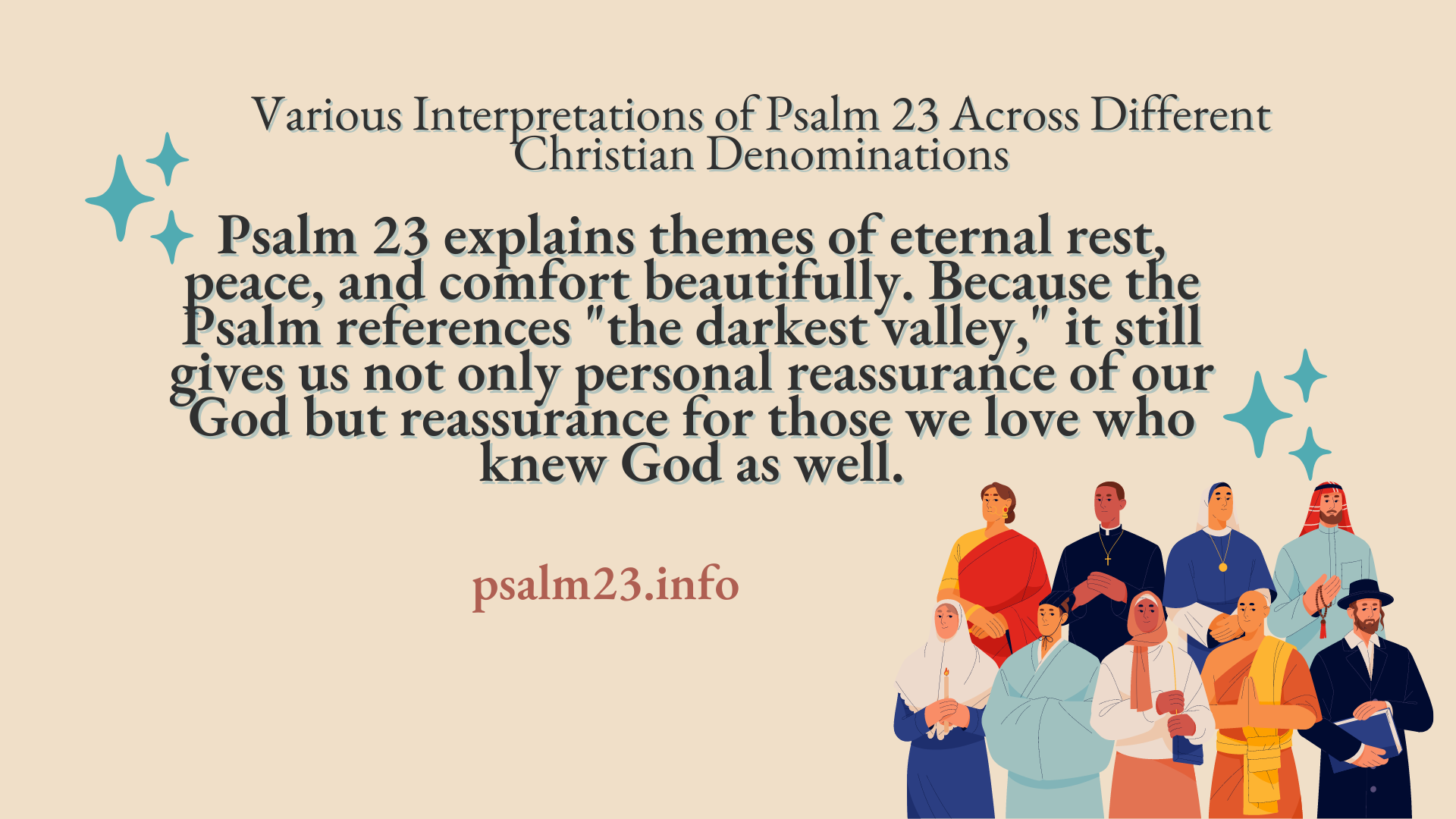Various Interpretations of Psalm 23 Across Different Christian Denominations
Psalm 23, commonly known as “The Lord is My Shepherd,” is one of the Bible’s most recognized and beloved psalms. Each denomination within Christianity interprets its themes and messages in slightly different ways:
Catholic Interpretation:
- Liturgical Use: Psalm 23 is often recited during Masses for the dead and the Liturgy of the Hours.
- Theological Emphasis: Emphasizes God’s guidance and provision, paralleling the Eucharist where believers find sustenance and comfort.
Protestant Interpretation:
- Reformation Impact: Widely translated and included in vernacular liturgies following the Reformation.
- Hymnody: Popular metrical versions emerged, such as “The Lord’s My Shepherd” from the Scottish Psalter of 1650, highlighting God’s care and protection.

Orthodox Interpretation:
- Eucharistic Preparation: Orthodox Christians often include this psalm in prayers of preparation for receiving the Eucharist.
- Mystical Understanding: Focus on the psalm as a metaphor for the journey toward divine union and eternal life with God.
Anglican Interpretation:
- Book of Common Prayer: Appointed to be read on the evening of the fourth day of the month.
- Funeral Services: Frequently used in funeral liturgies, symbolizing the soul’s journey to God’s eternal care.
Evangelical Interpretation:
- Personal Relationship: Emphasizes the personal relationship between the believer and Christ, the “Good Shepherd.”
- Contemporary Use: Often used in sermons, contemporary worship songs, and personal devotional contexts to reinforce trust in God’s provision and guidance.
Interpretation Themes:
Shepherd Imagery: Reflects God’s guidance, provision, and protection.
Comfort in Trials: “Valley of the shadow of death” symbolizes facing life’s darkest moments with God’s presence.
Abundance and Blessing: “Anoint my head with oil; my cup overflows” signifies divine favor and blessings.
Questions for Further Reflection:
- How does the imagery of God as a shepherd provide comfort and assurance in different life situations?
- In what ways do the themes of Psalm 23 resonate with contemporary spiritual practices across various denominations?
- How can the personal and communal aspects of Psalm 23 be balanced in modern worship settings?
